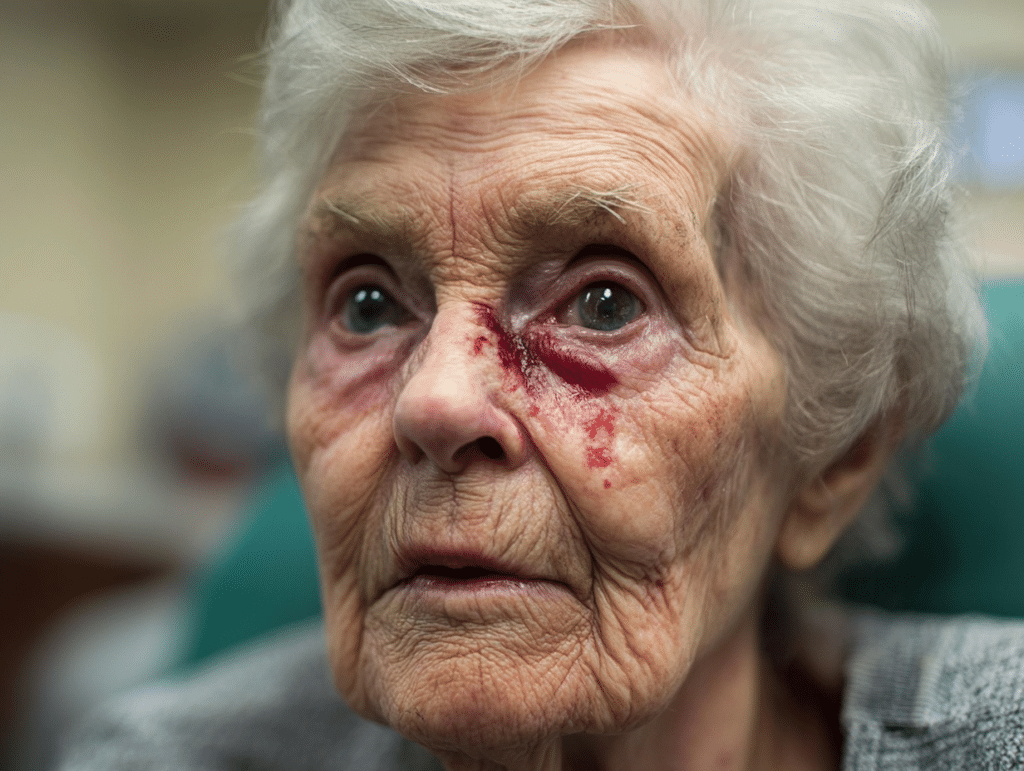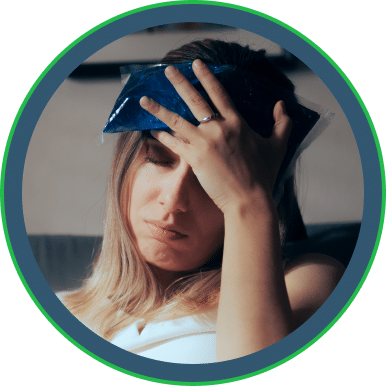Are you experiencing, or fearful of experiencing, nursing home abuse? We are here to help you. Our team of nursing home abuse lawyers has over 77 years of combined experience and knows how to fight and win your case. Let us help you make things right, hold people accountable, and protect future patients from abuse.
When abuse or neglect of a loved one by these care providers happens, it can feel like an enormous betrayal – because it is! Care your loved ones can trust is demanded by the law – both at the state and federal level:
“Sec. 2-101. No resident shall be deprived of any rights, benefits, or privileges guaranteed by law, the Constitution of the State of Illinois, or the Constitution of the United States solely on account of his status as a resident of a facility.
Sec. 2-107. An owner, licensee, administrator, employee, or agent of a facility shall not abuse or neglect a resident. It is the duty of any facility employee or agent who becomes aware of such abuse or neglect to report it as provided in “The Abused and Neglected Long Term Care Facility Residents Reporting Act”.”
When the very people you entrust with the care of your loved one to are responsible for their abuse or neglect, legal action may be your best option and that is why we have a team with nursing home abuse lawyer experience. Experienced attorneys like the professionals at Shuman Legal®, can help you get justice on behalf of your loved one.
We Have Helped Nursing Home Abuse Victims In Illinois For Over 39 Years. Get Free Legal Advice Today.
In Illinois, nursing home residents are entitled to protection under both federal and state laws that ensure their well-being, safety, and health. Nursing homes that fail to uphold the rights of their residents can be liable both civilly and criminally.
The relevant laws that cover nursing home abuse in Illinois include:
- Illinois Administrative Code: PUBLIC Health, Subchapter c. Long-Term Care Facilities
- The Nursing Home Reform Act of 1987 (Federal)
- The Illinois Survival Act
- Illinois Nursing Home Care Act
Nursing home facilities are also required by law to submit to a state investigation annually.
Illinois has approximately 1,200 long-term care facilities, with 131 of those here in the heart of the windy city itself. (https://ltc.dph.illinois.gov/webapp/LTCApp/LTC)
A quarterly report is published on the Illinois Department of Public Health’s website revealing facilities that The Illinois Department of Public Health has initiated action against, or recommended decertification for in that quarter. Over 150 Nursing homes in Illinois during the last quarter of 2019 have been determined to be in violation of the Nursing Home Care Act. We have a commitment to uphold the quality of care in our long-term care institutions.
If you suspect your loved one is suffering or has suffered abuse or neglect in a nursing home or other elder care facility – call us as soon as possible! The experienced attorneys at Shuman Legal® will help.
We Have Helped Nursing Home Abuse Victims In Illinois For Over 39 Years. Get Free Legal Advice Today.
We have a commitment to uphold the quality of care in our long-term care institutions. We will take swift legal action to compensate nursing home residents and their families for injuries resulting from neglect or inadequate care.
Our law firm serves the state of Illinois. This includes the city of Chicago, the greater Chicago region, as well as numerous other cities and towns, including Joliet, Schaumburg, Orland Park, Maywood, Kankakee, Peotone, Marseilles, Peoria, Decatur, Effingham, Danville, Moline, Galena, Cicero and more
Illinois Nursing Home Abuse FAQ
What are some of the common forms of Nursing Home Abuse?
Nursing Home Abuse, unfortunately, takes many forms, some more common than others. The four most common forms of elder abuse are
- Financial abuse – When a nursing home is in charge of a resident’s finances and uses that authority improperly for their own gain.
- Physical abuse – Physically restraining or striking a resident
- Neglect – Failing to provide care in accordance with state requirements to a resident, medically or otherwise.
- Emotional abuse – Insulting, threatening, or forcibly isolating a resident.
How long do I have to file a lawsuit for Nursing Home Abuse in Illinois?
The length of time to file a lawsuit – also called the Statute of Limitations – is different depending on extenuating circumstances. In the case of a claim for Nursing Home Abuse ending in an injury, this period is equal to two years from the time of the injury, or the earliest time that it could have within reason been discovered with due diligence.
Nursing Home Abuse involving financial exploitation has a different statute of limitations and has a Statute of Limitations of seven years as of legislation passed in 2016.
How can I report Nursing Home Abuse in Illinois?
If you or a loved one have been abused, or you suspect a loved one has been abused in a Nursing Home, you should contact law enforcement to investigate. If your situation is an emergency and you believe that there is immediate danger, you should call 911.
If you are concerned however don’t feel that there is an immediate emergency, you can report a Nursing Home that you suspect has been abusing its residents to the Illinois Department of Aging at 1-800-252-8966. You can contact the Illinois Department of Health as well through their website, or through the phone at 800-252-4343.
What are some of the signs of potential Nursing Home Abuse?
Sometimes it can be difficult to tell if a loved one in a Nursing Home is being treated properly. However, there are certain signs that can be a clear warning that they are being neglected or openly abused.
- Unchanged, dirty bed sheets.
- Unwashed or damaged clothing.
- Spoiled or improperly prepared food.
- Physical injuries, like bruises, scratches, broken bones, or bleeding.
- Anxiety or depression that might not have existed before
- Crying or unusually upset.
- Missing possessions
What rights does someone have in a Nursing Home in Illinois?
Beyond the rights that all citizens have, residents in a Nursing Home are entitled to certain rights based on Illinois Law.
There are many more, but some of the rights granted by the Nursing Home Care Act include:
- Receiving proper medical care that helps promote both their physical and mental health
- To review and receive copies of their own medical records.
- To choose their own doctor, and to be informed of their medical condition and treatment
- To manage their own finances
- To be free of physical restraints, and to choose to agree if needed for medical reasons
- To be free from neglect or abuse
- To respect their privacy when receiving care
What are the requirements for a proper Nursing Home in Illinois?
At a bare minimum level, under the Illinois Nursing Home Care Act, a Nursing Home is required to meet certain standards. A Nursing Home is expected to provide residents with the right diet for that resident’s needs, and to offer adequate facilities, including heating, plumbing, and lighting. A Nursing Home is also expected to maintain appropriately sanitary conditions and must have the right qualifications and equipment to provide the care that its residents require.
If a loved one is unable to make a claim against a Nursing Home themselves in Illinois, who can help them?
While the resident themselves is obviously one of the main individuals eligible for making a claim against a nursing home for abuse or neglect, sometimes they are unable to do so. In these situations where they are unable to make a claim themselves, their legal guardian may also be eligible to make a claim on their behalf. If you are unsure if this applies to your case, it can be a good idea to seek a consultation with a qualified Nursing Home Abuse Lawyer.
What can you be compensated for in a Nursing Home Abuse Lawsuit in Illinois?
If you or a loved one has been abused in a Nursing Home in Illinois, you may be entitled to compensation. Some of the potential damages that could be covered in a Nursing Home Abuse Lawsuit include:
- Your medical expenses and other care costs stemming from the abuse
- The Nursing Home expenses at the time of the abuse
- Future medical expenses related to your injuries resulting from the abuse
- Compensation for your pain and suffering
- Relocation expenses, if you are forced to move to another home












